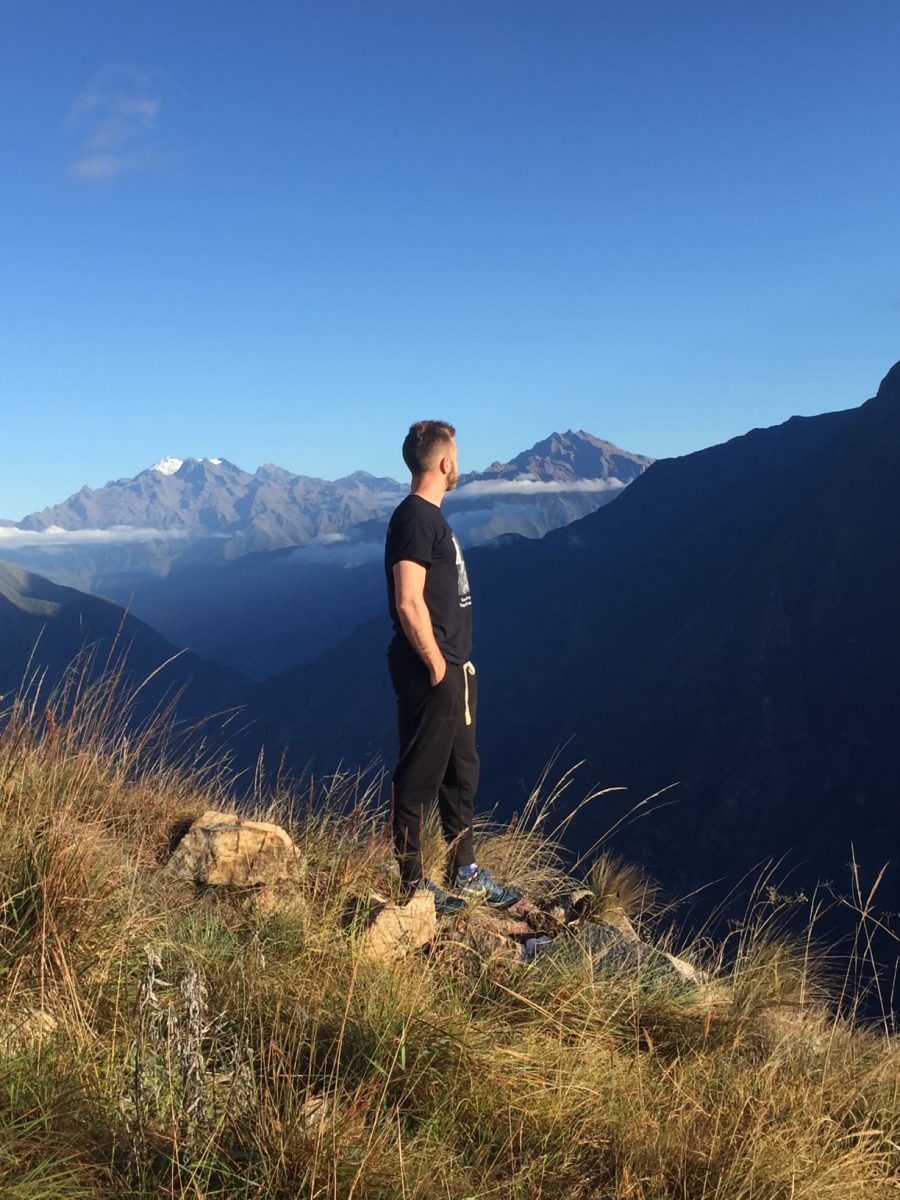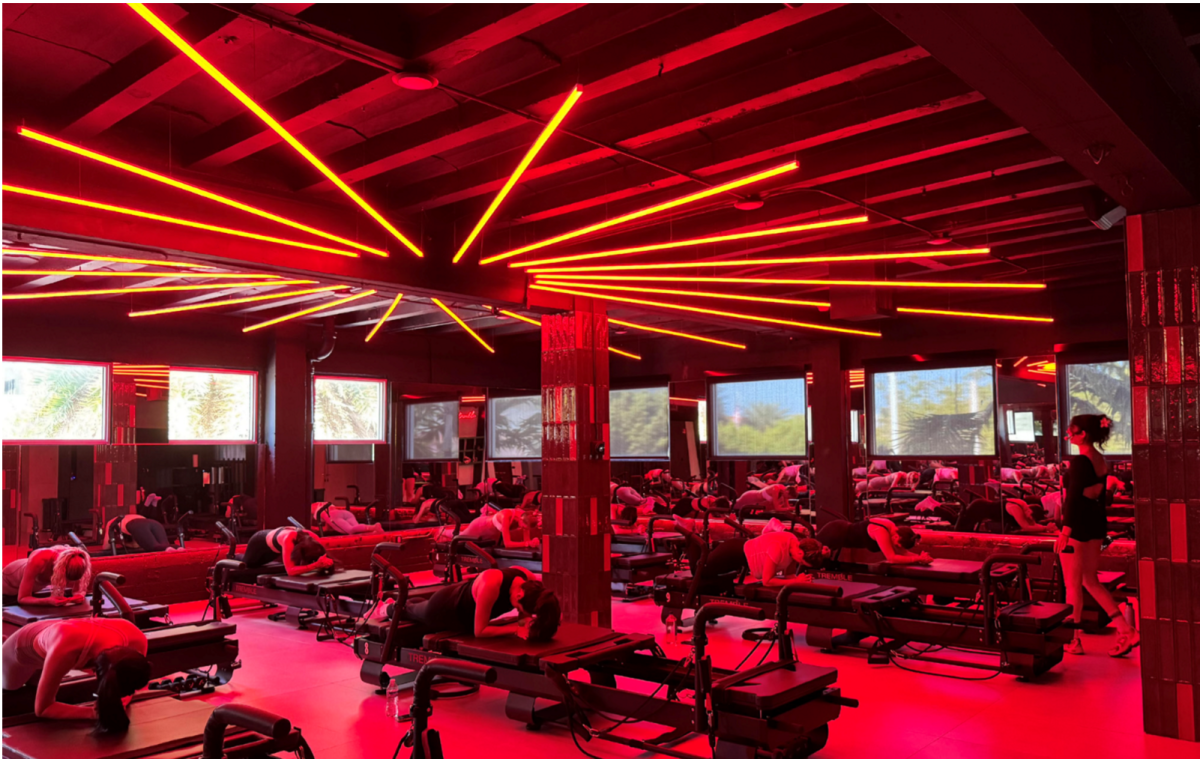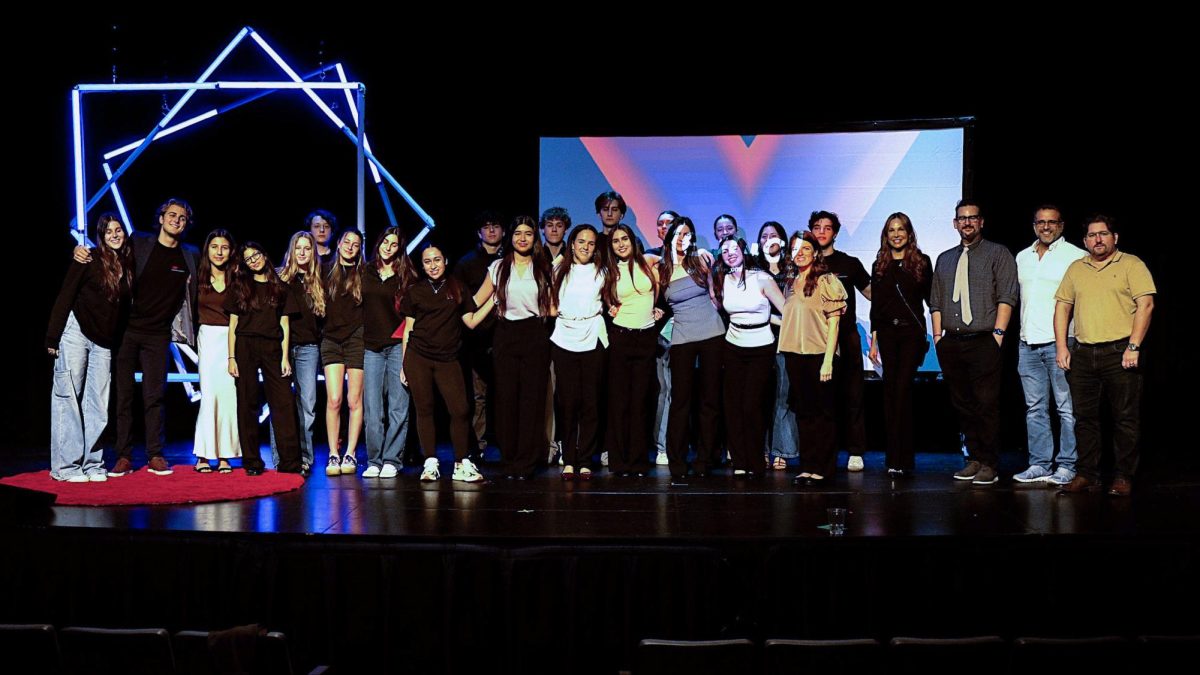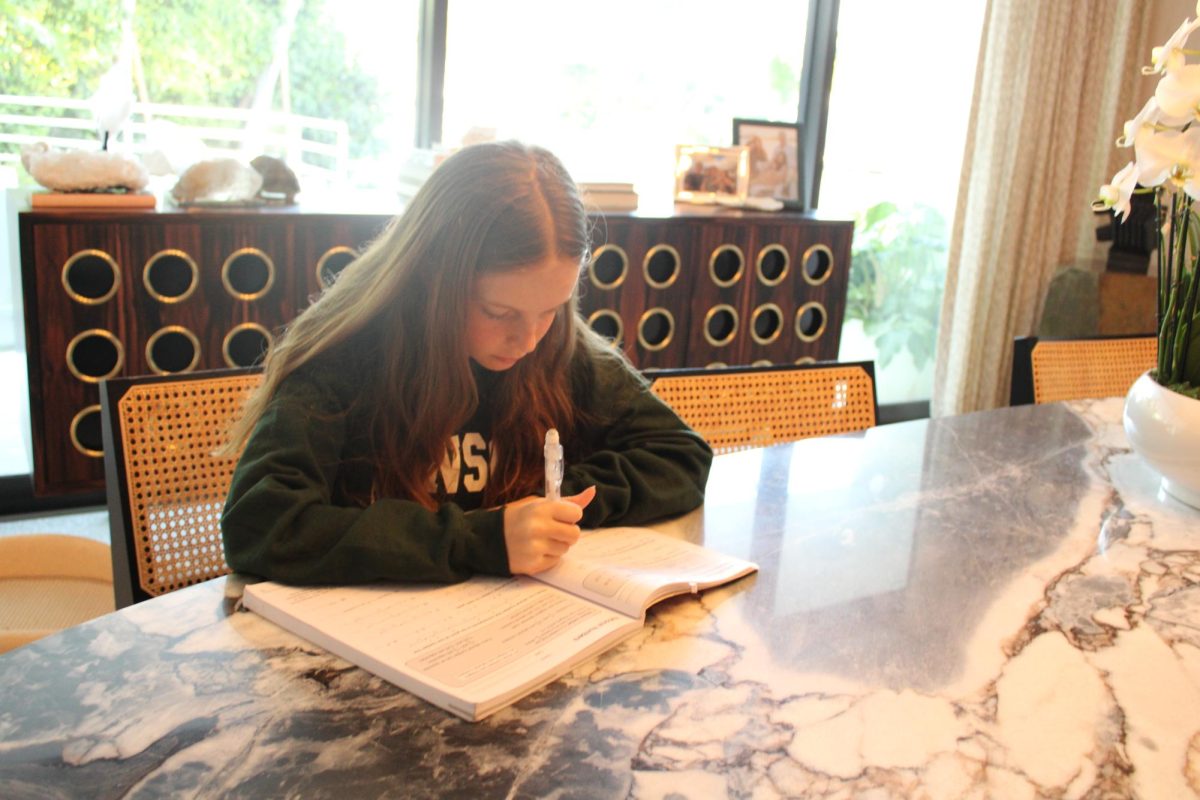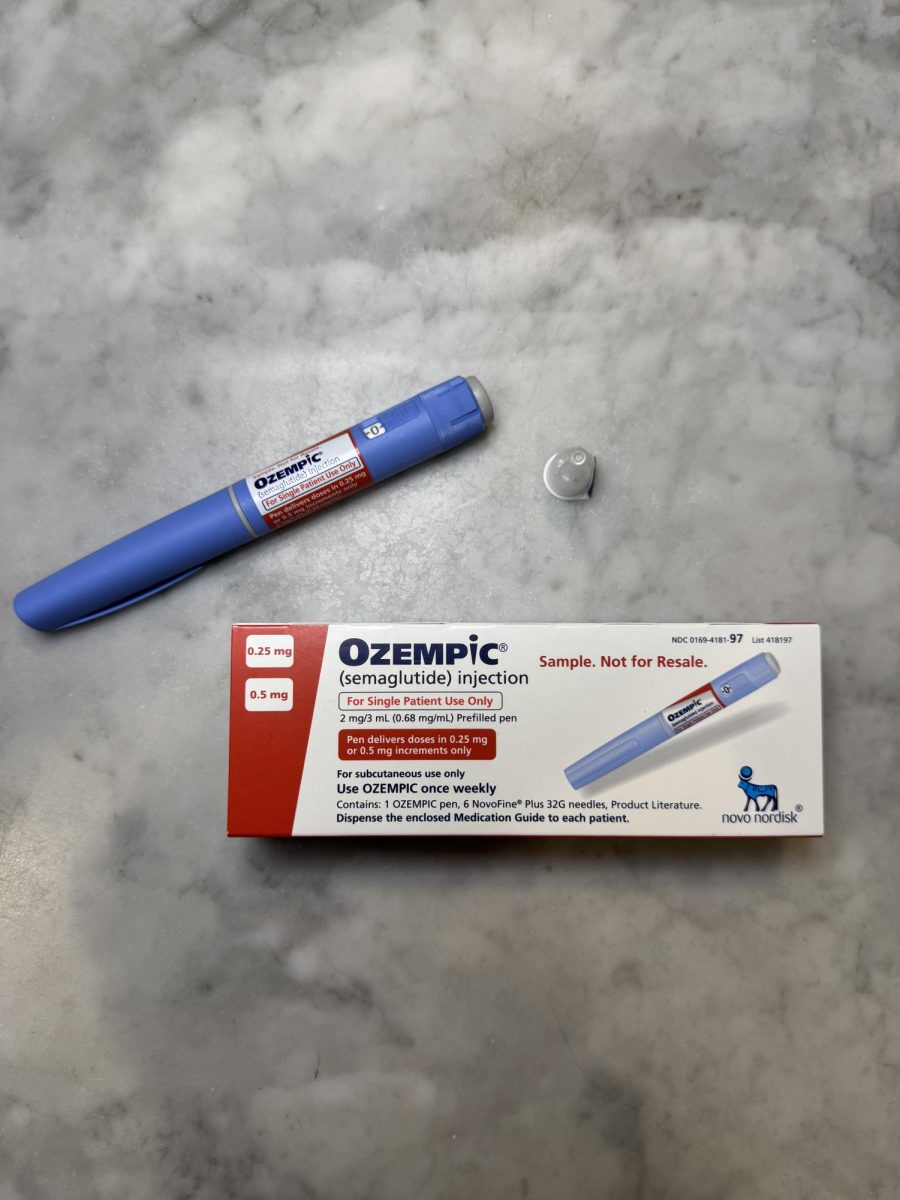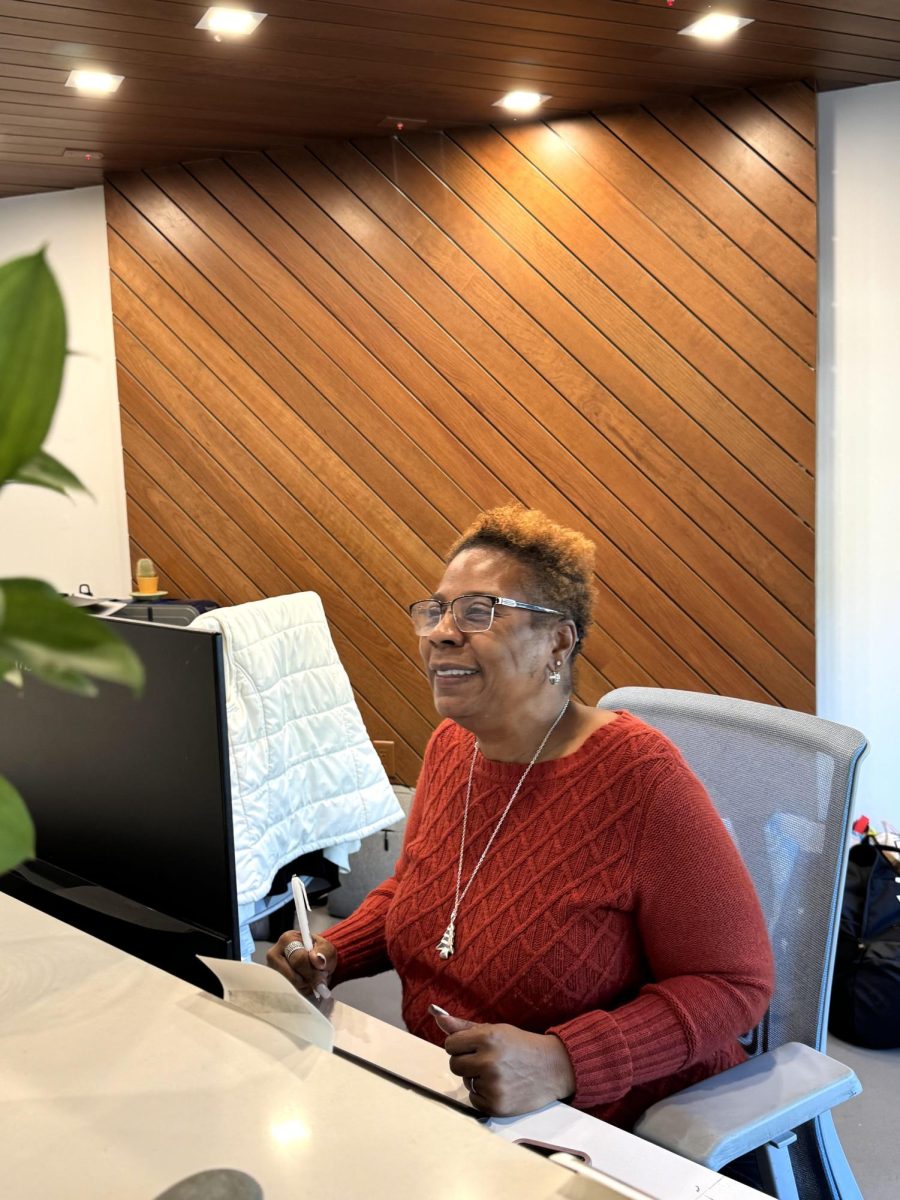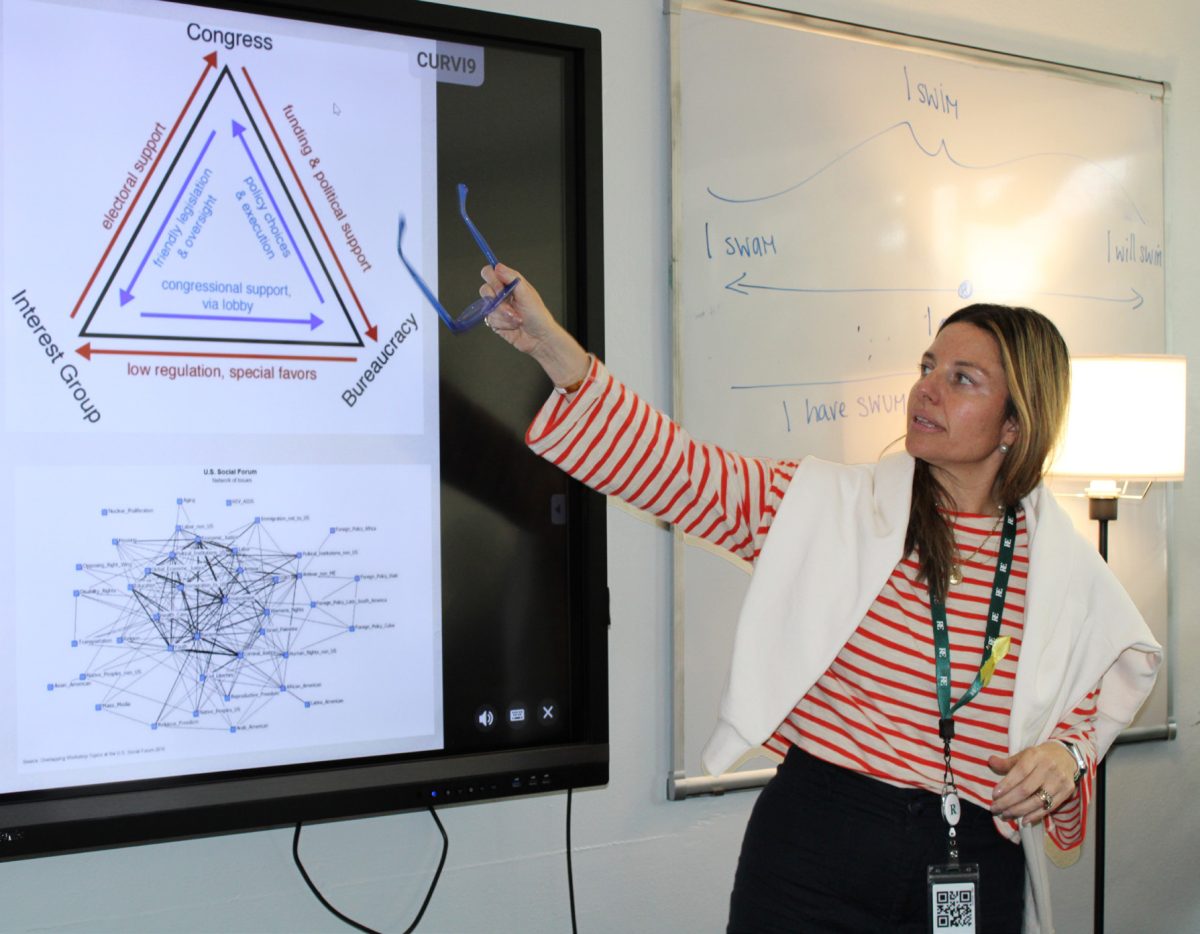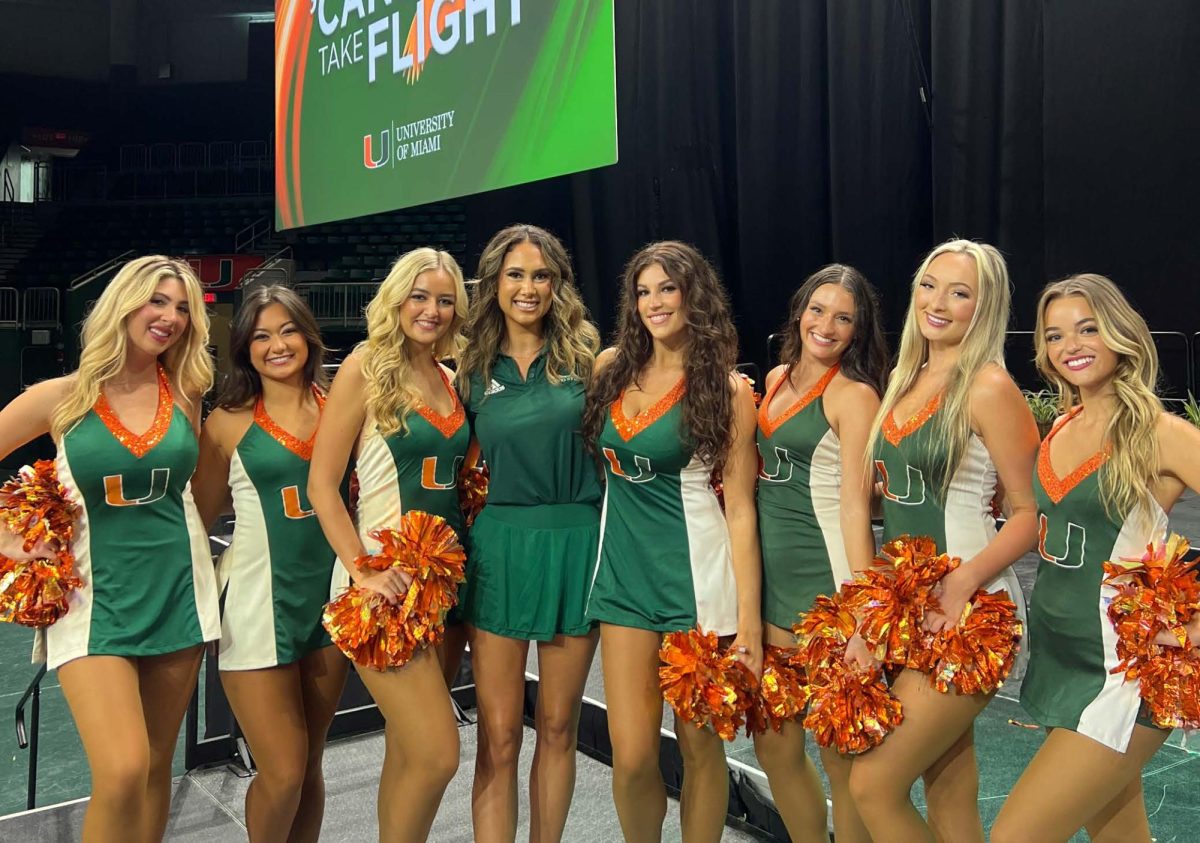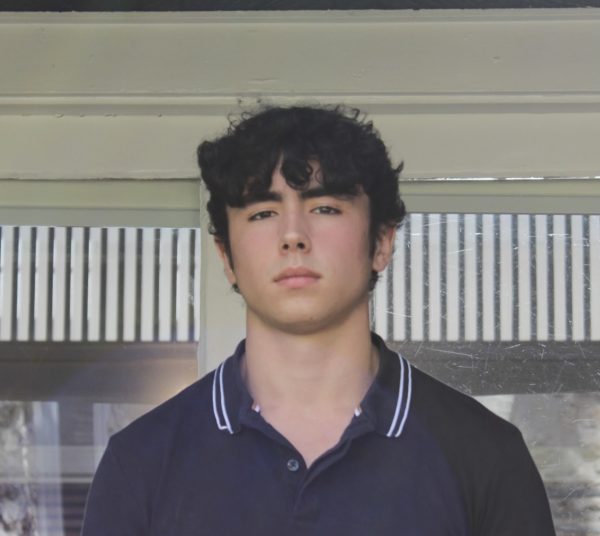Christian celebrity. Amish farmer. Would-be Hollywood star. Hotel bellman. Ransom Everglades Spanish teacher. Welcome to the life and times of Mr. Nathan West. Throughout his three years at RE, Mr. West has formed deep bonds with students in his Spanish and French classes. Though many know him for his unusual persona and engaging teaching style, Mr. West has always had an air of mystery surrounding him.
Armando Barlick ’26, a student in his French 1 class, said he “strikes me as an intellectual with a deep past.” According to Mr. Amaro, one of his close colleagues, “he’s still mysterious.” I myself have known him for over two years, but even then, I still felt like I had no idea who the man was, and I had no idea what I was getting myself into with an interview. I must admit that even now, after talking about his past with him for several hours, I still have no idea who he is.
We start our story with a small boy in Lancaster, Pennsylvania, “the fourth of five siblings.” According to Mr. West, his early years revolved around Catholic doctrine—“nightly prayers, Sunday mass, and Catholic school.” Even his birth, he said, could be traced back to Catholicism. “My parents were inspired by the late, great Pope St. John Paul II,” West explained. “He came to Philadelphia in the early ’80s and preached the value of generous reproduction. My mom and dad, who considered themselves done, decided to make me. So, thanks Pope St. John Paul II.” His name, Nathan West, comes from his “great grandfather, who died in a barn fire.”
Throughout his childhood, he “thought about becoming a professional athlete and went through many phases [of interest].” One of these phases was dedicated to birds. On the search to find more birds, he made his parents take him to Florida. This was his first taste of the Sunshine State. Looking back, he had a “mostly happy childhood” which molded him into who he is now.
After high school, he enrolled at NYU in 2001, and found it to be a stressful place. His late teens were a “very religious” time for him, he said, and NYU did not align with his values—if anything, it pushed him even further into “extreme religiosity.” One week before 9/11, he quickly changed his mind and decided to forget the big city and go to Ave Maria College, a small Catholic school in Ypsilanti, Michigan.
Ave Maria was, in theory, a better fit for his religious ideas at the time. But he then started feeling the weight of his older brother, Christopher West, who had already become an extremely prominent speaker and celebrity in the Catholic community. It was strange for Mr. West to be at this new school because when girls found out he was Christopher West’s little brother, they assumed he “was the paragon of virtuous Catholic manhood”—even though he was probably not the most devout Catholic around. “They all thought I was Captain Catholic and wanted to spend the rest of their lives with me,” he said. “It wasn’t in the way that the quarterback at Penn State might get fallen for, but it was all these very conservative Catholic girls swarming around me wanting to pray the rosary and things like that. For them, it was like telling a normal person that you’re Drake’s brother.”
Just out of college, he was looking for something to put his energy into and “thought manual labor would help.” He moved back to Pennsylvania and started working for an Amish carpenter crew. Why? One simple reason: the only Hollywood movie filmed in Lancaster, “Witness” starring Harrison Ford. “There is a 5-minute barn raising scene with nary a word of dialogue and a very beautiful soundtrack that encompasses the whole thing,” he said. Throughout his life, “any time visitors came to Lancaster, we would show off that movie. Eventually, it was engrained in my brain as the joys of manual labor done with a smile. Communal work with beautiful music.”
Because the Amish don’t operate vehicles, West was their pickup truck driver. When probed about the Amish themselves, West described them as “interesting with very spicy jokes.” During his tenure there, they gave him the “Lightning Hammer Award” because his “hammer never struck in the same place.” He didn’t spend too long with them, but he said he’s “glad I did it. Working with my hands cleared my head because of how simple it was.”
When autumn came, the cold combined with a desire to do something else prompted Mr. West to “move to LA and try to be an actor.” He drove his Honda Accord across the country and stayed in Malibu with a friend of his brother. West went to open audition calls and was intimidated by the number of hot-shot actors surrounding him. How many acting jobs did he get? “NONE!” How many auditions did he attend? “Probably two.” Clearly, this was not going to work out.
But one day, when he was buying milk at a grocery store, West came across a man with a thick Northeastern accent. They started talking when the man told him, “You’re trying to be an actor? Go to New York.” West said he “received it like an oracle.”
He packed his bags once more and moved to New York. Just to survive, he got a job at the 60 Thompson Hotel doing room service. When he was there, “there were a few run-ins with fame,” including stars such as Jude Law and Lindsay Lohan. Of all the stars, however, he had his most notable experiences with Kirsten Dunst. According to West, “Kirsten was super friendly, approachable, and non-starish.” This was when “Spider-Man 2” came out and Dunst was in New York to do all the promotion. Dunst asked him for “outfit tips” and invited him to musicals. West got to know her quite well. In fact, she even left him a “hand-written letter” upon her departure which featured her 50 favorite songs on it.
Eventually, she came back to do promotion for “Spider-Man 3” in 2007, and they saw each other once more. On his birthday, he brought up a tray for Dunst when he noticed balloons in her room. She told him she had the same birthday, to the day: April 30, 1982. According to West, she said, “If you aren’t doing anything tonight, you can come to my party!” But West had a massive dilemma: his family had prepared a birthday celebration for him with his extended family, who had flown in to celebrate. Unfortunately for this story, his “overactive instinct to do the right thing did not serve [him].” He drove home—which, according to West, was “the bad, bad choice.” After that night, he never heard from her again.
He then went to France through a program which allowed recent graduates to teach English in French schools. Mr. West said it was a “great sink-or-swim experience in teaching.” Even though he was brought in to be an assistant, they gave him the duties of an actual teacher. He wanted to continue these international experiences and taught French in Benin to French-speaking Africans. Once it was all over, he went back to New York and did a brief stint at Romano’s Macaroni Grill. But he yearned for something more meaningful.
At this point his second-grade teacher had opened a school in Sierra Leone, which, as he describes it, is “the poorest place on Earth.” He felt called to teach. “It was great, but it was pretty difficult at first,” Mr. West explained. “There’s no shower, you drink bacteria water from a well, and you sleep in a hut.” This school was a place for ex-child soldiers from the civil war. “They were broken people who were forced to do horrible things by abusive adults,” he said. Mr. West was there to teach them English. While he lived there, he learned Creole in addition to the English, Spanish, and French he was already equipped with. The most surprising part to him was when he found that “they were jolly folk who were sweet, lovely, and the most generous people” he had ever encountered.
Because Sierra Leone had been the only truly gratifying adventure for him thus far, he went back to Pennsylvania and wanted to continue helping people. He utilized his language skills as a language interpreter for Lancaster General Hospital. The job mostly consisted of “informing patients of unfortunate medical news in other languages.” After about two years, he got his master’s degree in French through an exchange program at Middlebury, which let him live in France again.
Sierra Leone made Mr. West realize that material wealth did not equate to happiness. He returned to the one venture that gave his life purpose: teaching. When he returned to the United States again, he got a job at The Hill School in Pennsylvania. His love of other cultures persisted, and he was known as a “crazy travel addict” while he worked there. He then found himself teaching at boarding schools in Arizona and New Mexico, exposing himself to new natural surroundings. Looking for a change of scenery, he “found a job listing for a World Languages position at a known South Florida School called Ransom Everglades.” According to Mr. Amaro, when West was looking for something new, “RE needed French and Spanish teachers.” Mr. West was able to do both.
After nearly three years at RE, the story continues. Mr. West has brought all his life experience to RE, teaching students the intricacies of Spanish and French in a style that is unmistakably his. In many ways, Mr. West’s path is much like anyone else’s: a search to belong. Though I feel I have still barely scratched the surface of what the man has experienced, I can guarantee that no matter what he does next, it will be absolutely insane.


